Are electric scooters the future of short distance commuting?
Is this the future of city commuting? We try out 3 NIU electric scooters to find out, riding the NIU UQI GT Pro, MQI +Sport, & NQI GTS Pro.

IT’S a bold statement to make, but electric scooters (like the NIU range we tried out) could well be the literal future of short-distance commuting.
To put the theory to the proverbial test, Visordown headed out to Wheels Motorcycle in Peterborough to test out three NIU electric scooters, seeking to find out if battery power has what it takes to topple the loud, petrol alternatives.
In order to suss it out, there are three main categories to answer; cost (purchasing & running), range & reliability, and if they offer anything over the current competitors.
Scooter review - Honda Forza 750 (2021)
First things first, what’s wrong with the standard public transport commute? Well, not only is it no fun and often slower door-to-door, recent global events have brought a question mark over sharing the same metal tube in close proximity with hundreds of other people. Further, monthly season tickets don't quite allow for the hybrid home/office dynamic that many commuters may be seeking - and buying a ticket on the day can add up.
Enter the electric commuter scooter.
Make no mistake, electric scooters aren’t going to be flying down motorways and covering extraordinary distances to heroically carry you to the office; rather, these are electric scooters for local commutes in towns and cities.
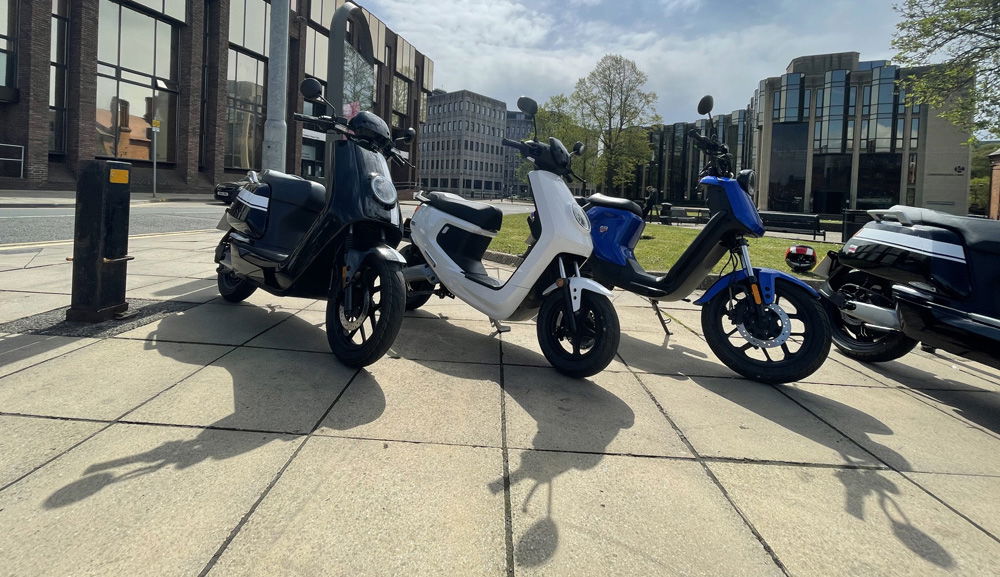
NIU establishes itself on the market as a fairly new brand, starting life as a tech firm in China in 2014. It’s reported they have sold 400,000 electric scooters worldwide in that time.
With the three scooters offering varying styles for different crowds, NIU scooters are all fitted with Bosch rear hub motors and removable Panasonic lithium-ion batteries - considering the lack of moving parts, upkeep and maintenance is fairly minimal. Perfect for a commuter who wants a simple way into work.
We tried out the NIU UQI GT Pro, MQI +Sport, & NQI GTS Pro, set as three e-scooters at different price points between £1500 & £4000, making them equivalent to their traditional rivals.
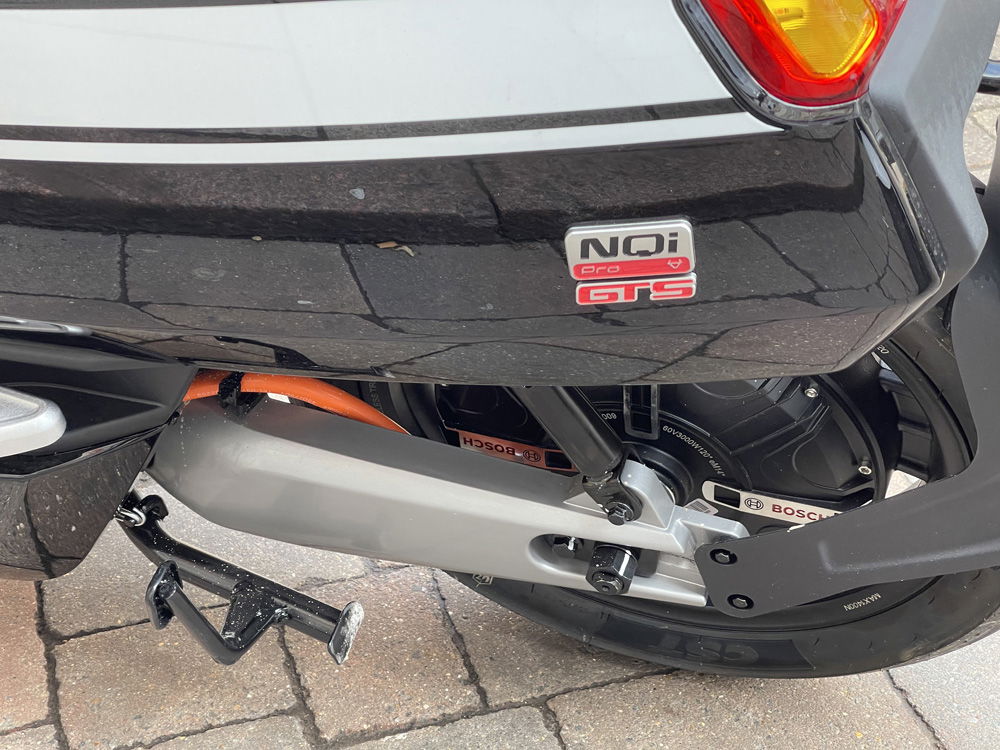
In fact, let’s have a quick look at the ‘rivals’. A Vespa Primavera 50cc is £3,550 - yes it can do around 100mpg from an 8-litre tank, but it’s £3,550. Peugeot Kisbee 50, £2,099. There are budget 50cc options out there for cheaper, but they are rudimentary machines that serve the same purpose as these electric options.
NIU electric scooters
NIU scooters may have more consonants than a Scrabble players worst nightmare, but they aren’t much different in the initial purchase price and have fewer moving parts to keep on top of.
Plus, they aren’t subject to road tax (currently), and are arguably cheaper long term with penny-per-mile costs. Oh, and you get app integration as standard, including GPS tracking and smart features!
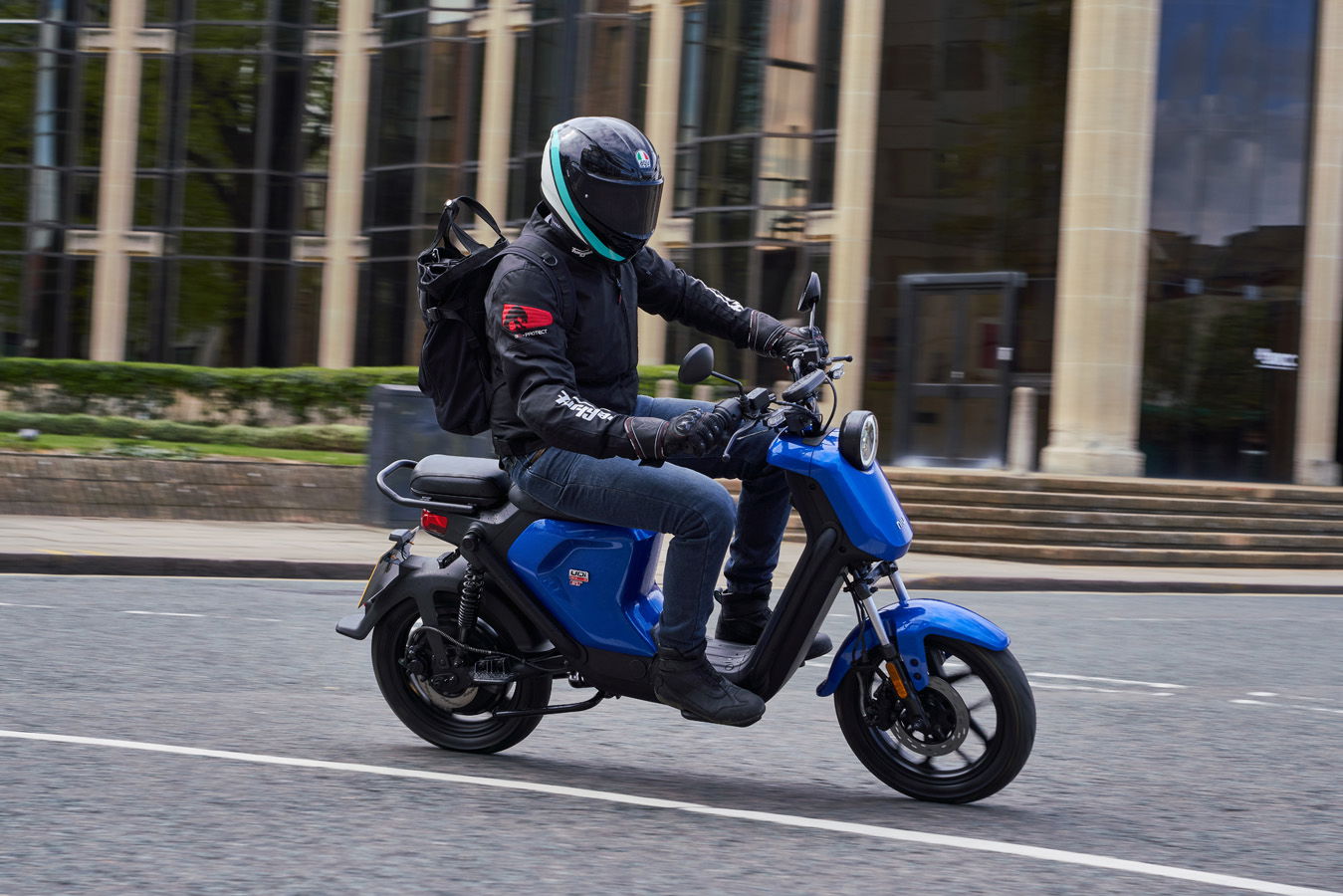
Eco-conscious urban riders will have their heads turned further by the attractive price point and cheap running costs - when weighed up against the traditional commuting methods, an equivalent 50cc or 125cc electric scoot becomes even more reasonable when you consider they can be recharged for around a penny per mile, with removable batteries giving ranges between 40-50 miles per cycle.
Peak power outputs of circa 4 BHP for all these scooters bring them closer to a 50cc equivalent than 125cc, but riding in populated areas where these will spend their days would rarely require any speeds exceeding 30mph - but the GTS Pro can get to around 45mph!
Electric power gives torque figures closer to a mid-size bike, too, and get these to their top speed rather quickly.
What are the negatives of electric power?
There are drawbacks, of course - it’s a new tech, so may well be outdated in a few years. The batteries cost a touch over £1000 to replace after a 5 year lifecycle. There’s no underseat storage as that’s where the battery lives, and with that comes nowhere to put the charging cable. Recharging does take a good 5-9 hours, too.
A few minor drawbacks from what is otherwise a capable functional machine. No thrills, but no nonsense. You could have one of these to get to the office, and an R1 for the weekend if you really fancy it!
Get past the initial concerns of range and charging times and they’re a sensible option. If you’re commuting 5 miles a day, that’s a 25 mile ‘working week’ - you’d only have to charge it once a fortnight for pennies. Throw in zero road tax, little to no servicing required (the hoops could last ages given the limited mileage) and it becomes extremely cost-effective.
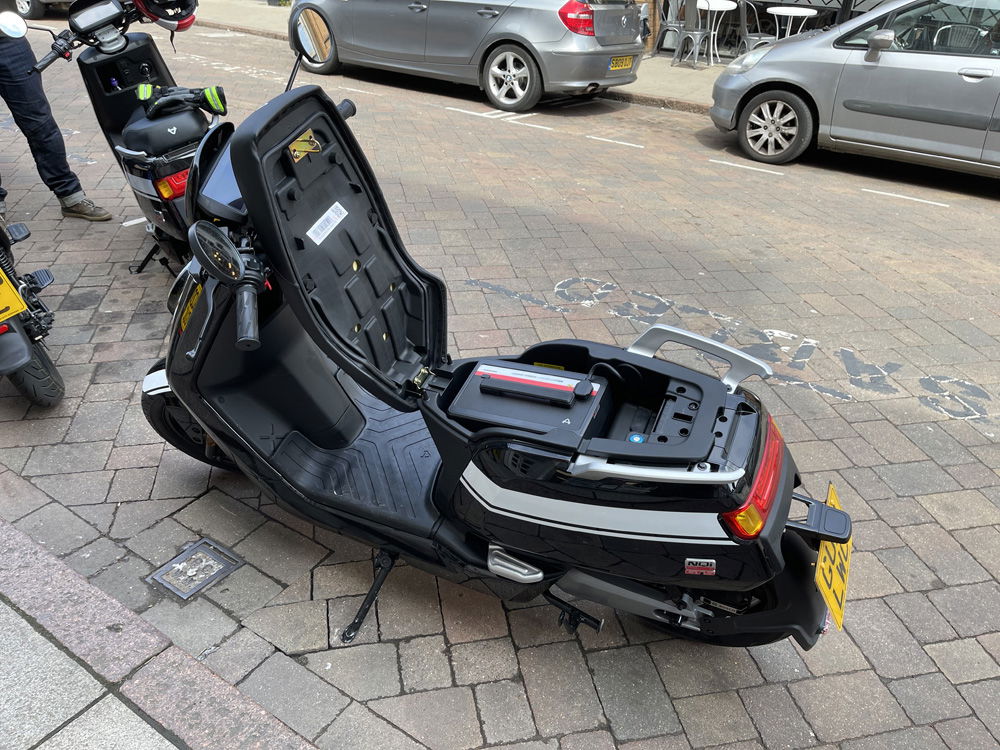
Here’s a hot take: before long these electric scooters will all but entirely wipe out what’s left of the 50cc market, especially when you factor in the ongoing cost of combustion engine rivals. The only real downside is the lack of underseat storage - get a top box or wear a rucksack.
In answer to the initial question, I’d consider electric scooters the future of local commuting. Until battery (or alternative fuel tech) progresses further, it’s not taking over the motorcycling industry - it’s just creating its own segment. Further underlined by the big manufacturers releasing their own takes on electric commuters.
Without a doubt an electric scooter is a perfect option for a runaround, it just makes sense - and the NIU range offer that bit more with the tech integration and nice style. If you’re searching for a cheap little runaround commuter, you may have just found what you’re looking for.
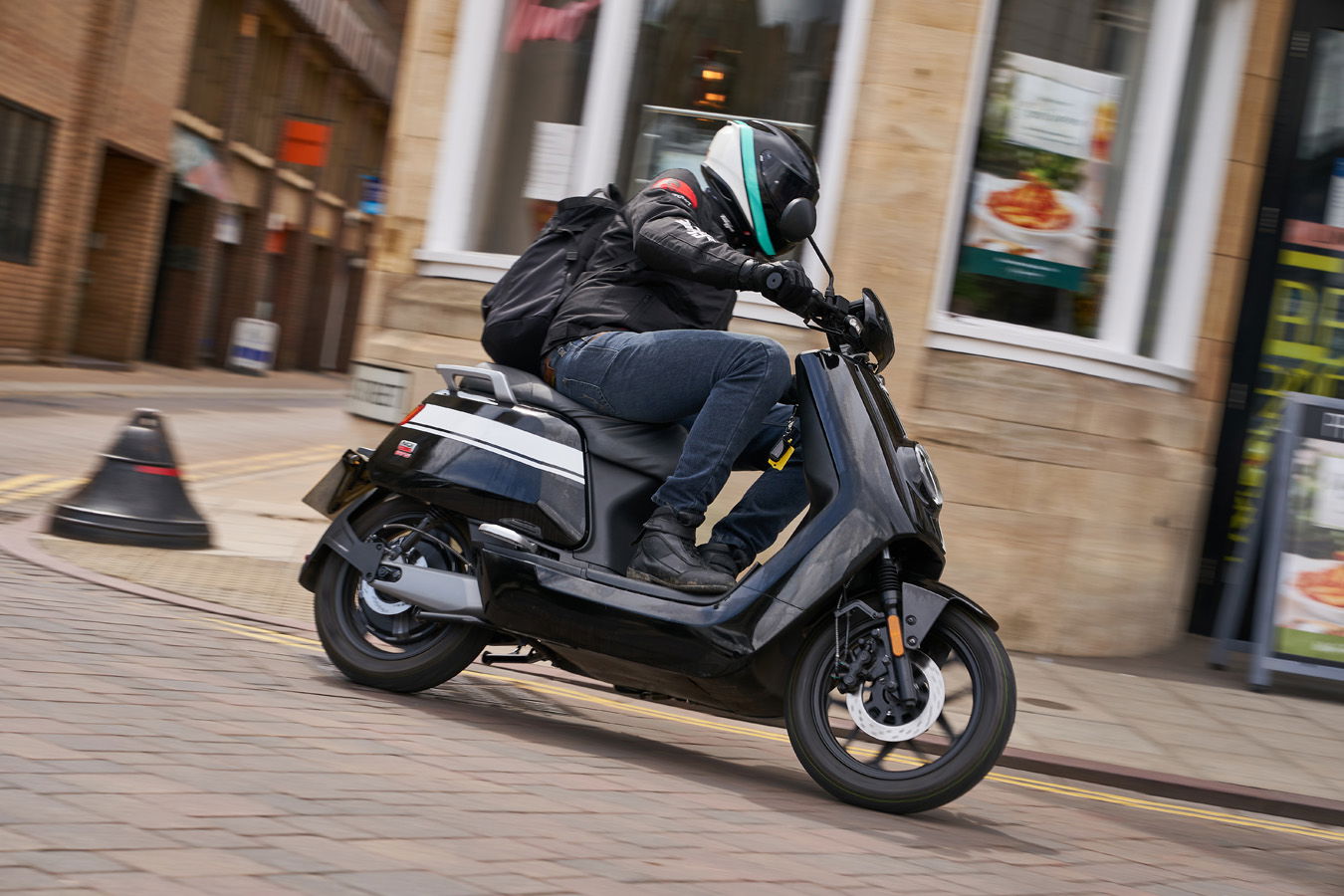
Check out the NIU scooter range to find out more.
.JPG?width=1600)






